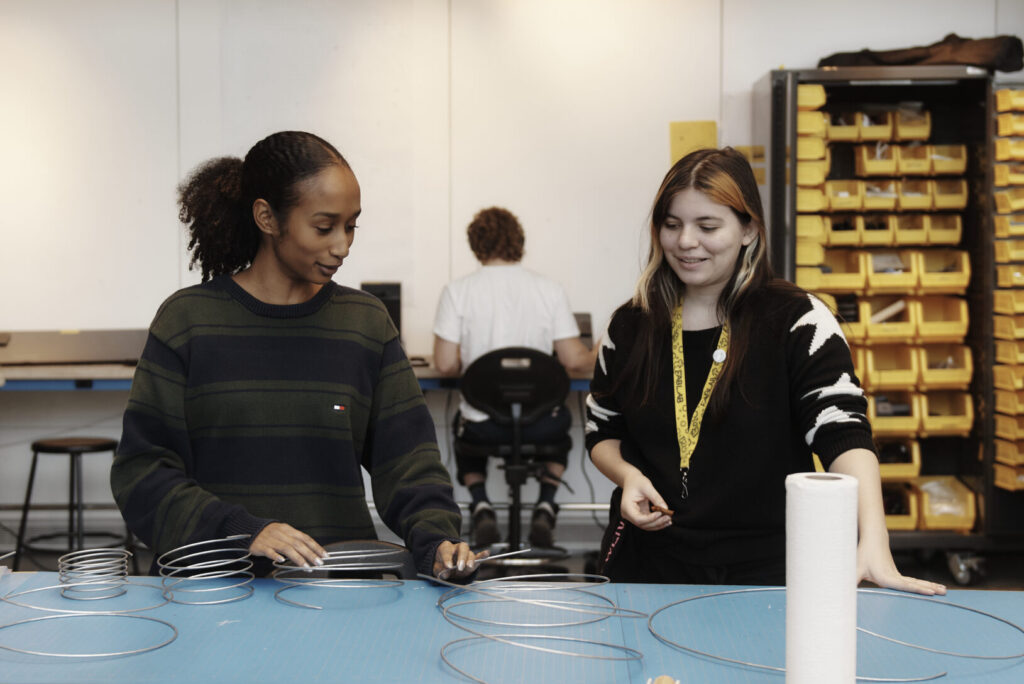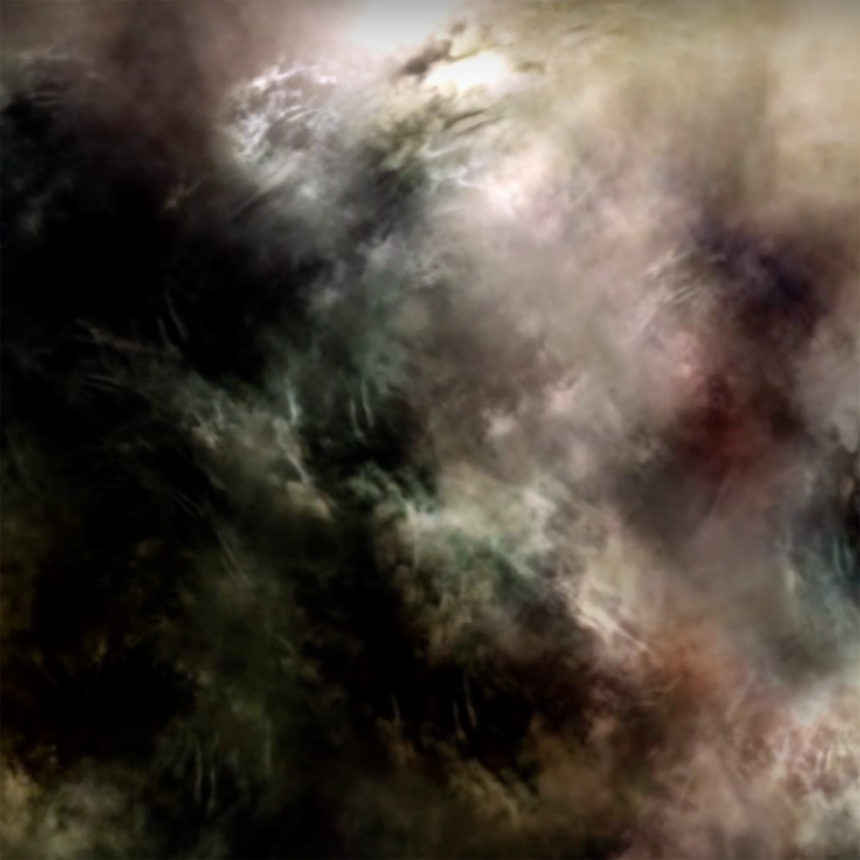The Film/Video MFA program helps students refine their practice as artists working with the moving image.
MassArt offers a full-time, two-year (60 credit) MFA in Film/Video. This intimate, rigorous program provides a unique learning environment for students looking to take their work to the next level. Students are encouraged to experiment both conceptually and formally across a broad spectrum of film, video, installation, and new media.
MFA Film/Video students have access to MassArt’s first-rate facilities that allow them to develop a professional studio practice, advance their technical knowledge, and hone their creative skills. Facilities include: analog film and digital video cameras, audio recording equipment, sound and lighting studios, 360 cameras and VR headsets, professional editing and finishing stations and software, 16mm Steenbeck reel-to-reel editors, a handmade film lab, Kinetta archival scanner, and an optical printer, and an Oxberry animation stand. In addition, all MFA students have the use of personal studio spaces.
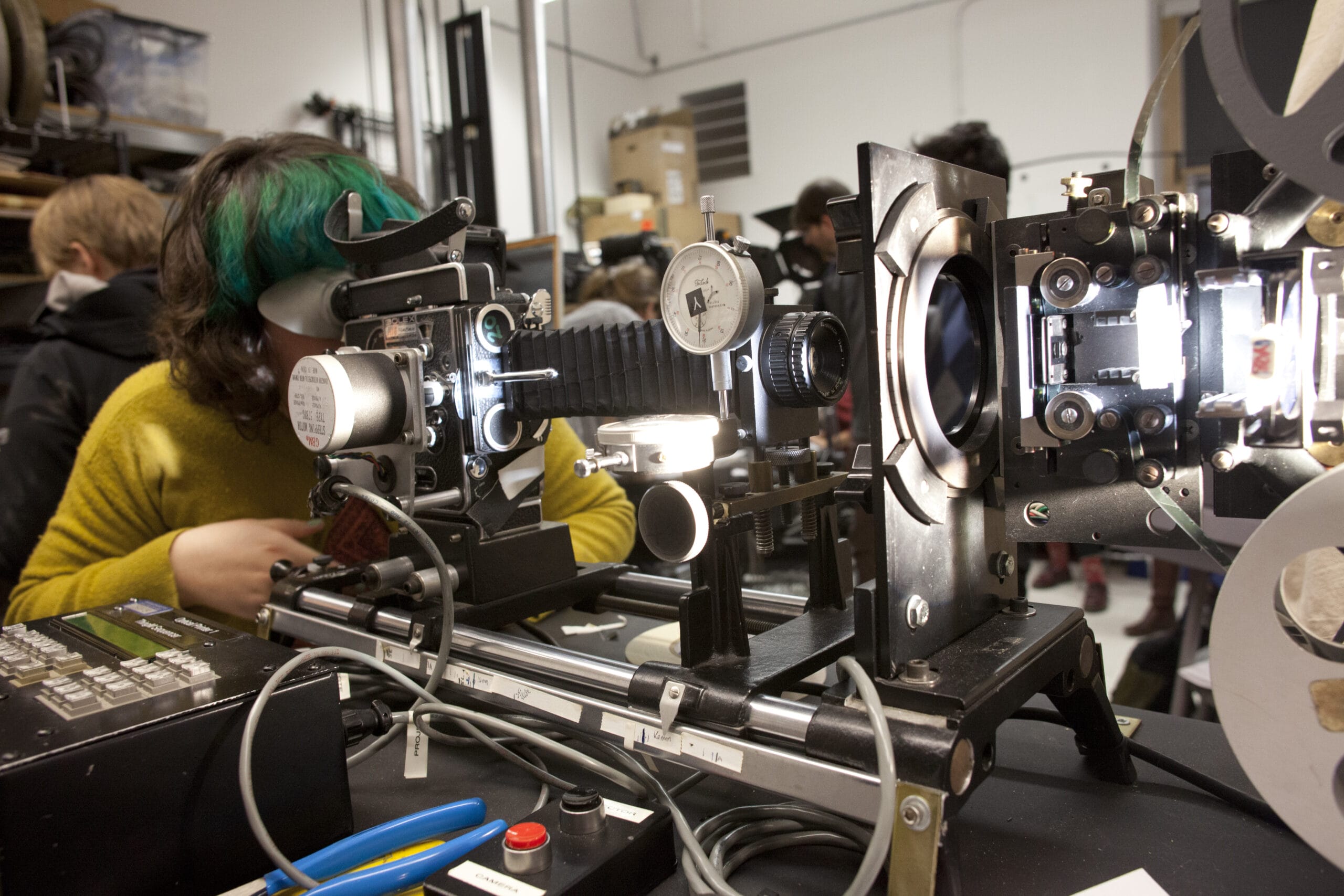
Film Video

Student work in the Film department’s edit room.
Classes focus on critiques of student work combined with group discussions of the theory and challenges of contemporary moving image work. Program opportunities also include visits from acclaimed film/video artists and curators, cross-registration with MIT and UMass Boston, internships, teaching assistantships, and the exceptional cultural, creative and intellectual resources of the City of Boston.
Several post-graduate residency opportunities are offered each year to recent alumni, including international teaching residencies in Beijing, China, and Bangalore, India. The program also coordinates and funds local and regional residencies at MASS MoCA, the Longy School of Music of Bard College, and The Skowhegan School of Painting and Sculpture.
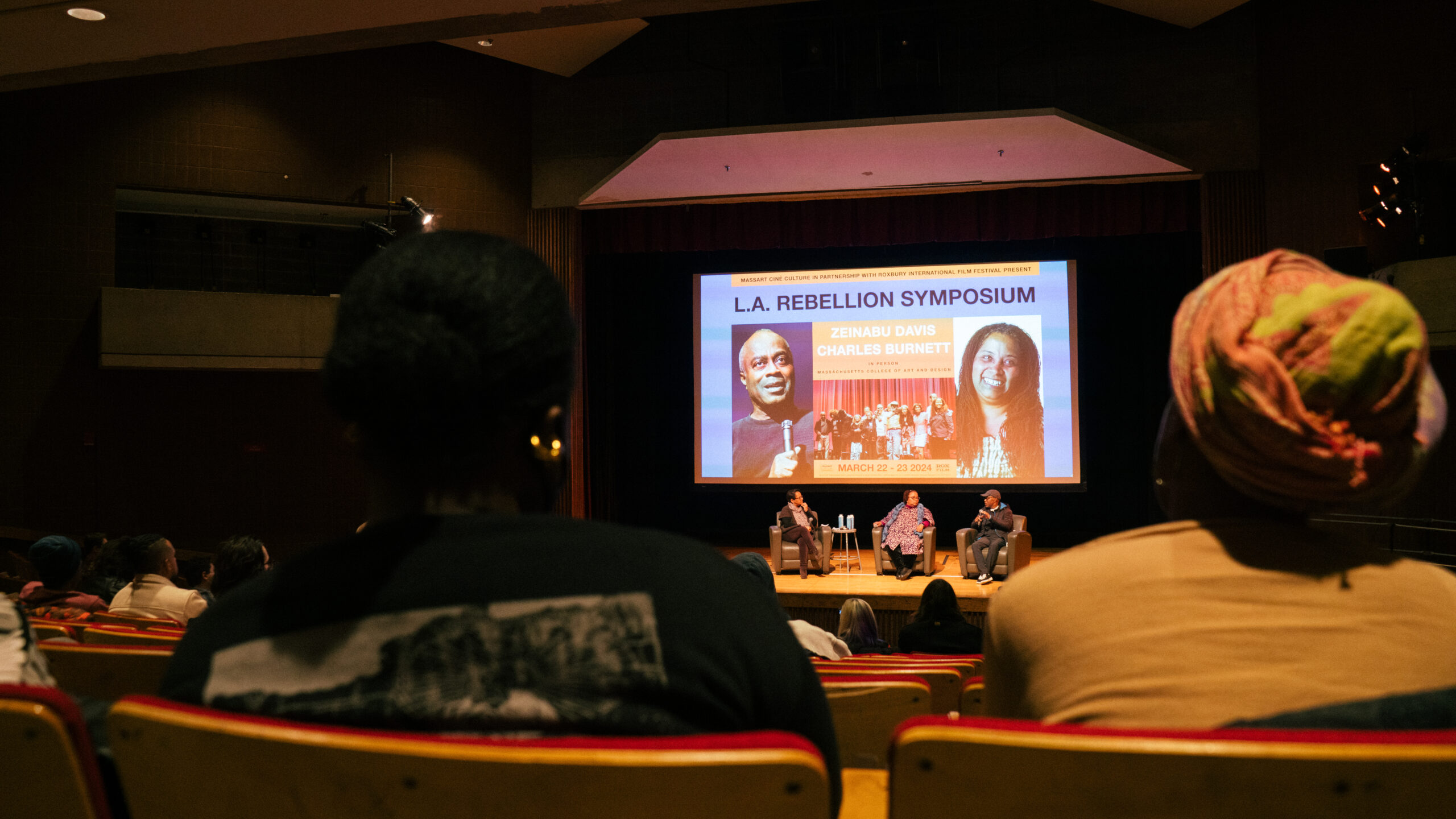
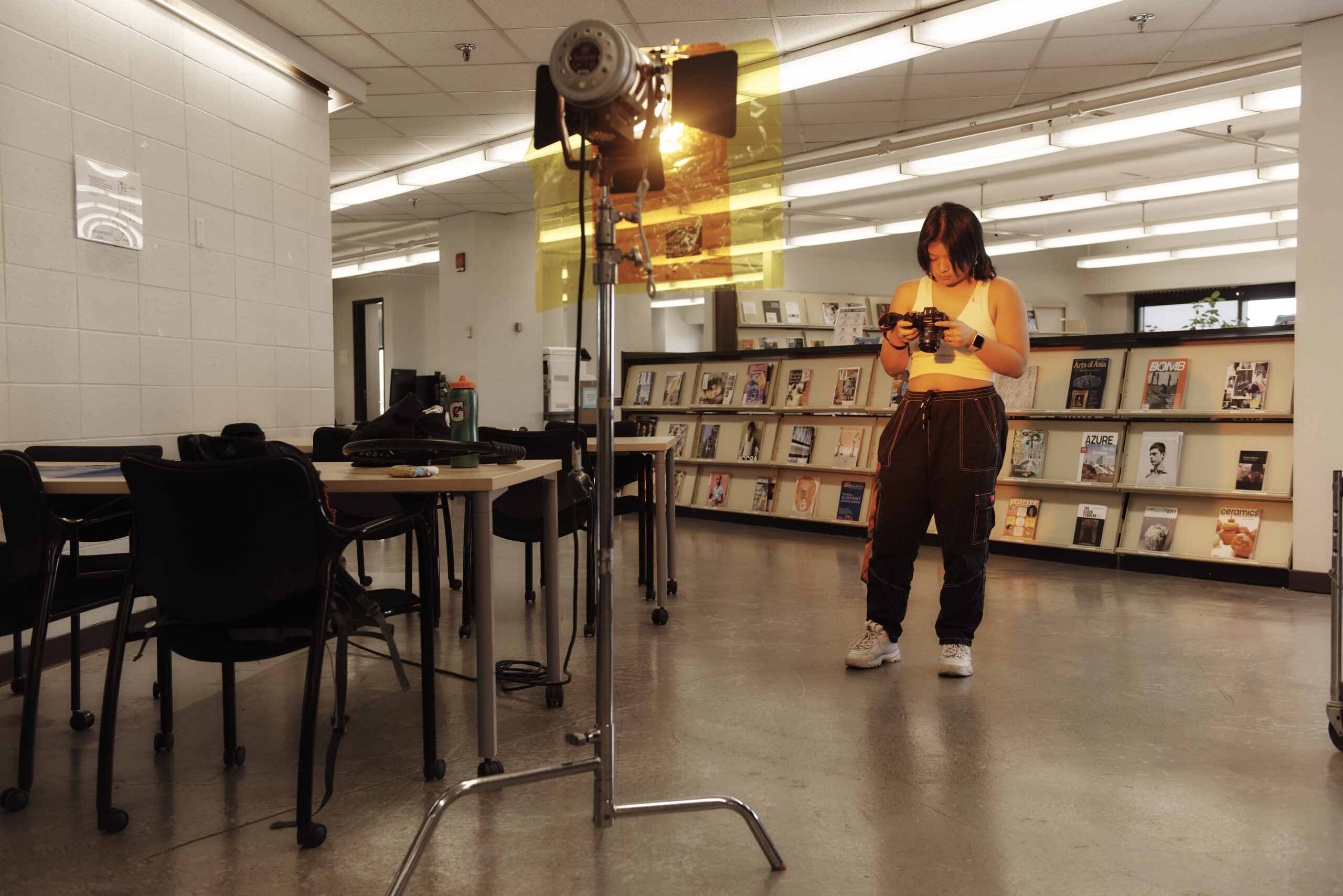
MFA Learning Outcomes
Students who complete the Film/Video MFA program are expected to be able to demonstrate the following learning outcomes.
- Develop a professional studio practice, with personal content and vision
- Advance technical knowledge and skill in film and/or video, and in other media as needed
- Expand the media in which time-based work can be produced
- Understand the work in relation to the anticipated audience
- Understand one’s work in relation to contemporary art and art history
- Develop the ability to critique peers’ work across disciplines
- Develop awareness and understanding of the diverse cultural, historical, and experiential issues expressed and inherent in one’s own artwork and in that of one’s peers
- Develop presentation skills including public speaking, proposal writing, exhibition guidelines and artist’s statement
- Exhibit one’s work in a professional setting and in a professional manner. Students may also participate in other exhibitions and curatorial opportunities at the college or other venues
- Understand how to engage in professional organizations and events for career development
- Develop knowledge of major historical and cultural characteristics of specific times /places. Infer relationships between society and art
- Recognize various types of texts used in art historical analysis, and evaluate their content and effectiveness. Use various ideas, approaches and facts in the analysis of art. Formulate, research and argue a hypothesis. Articulate verbally and in writing, theoretical and critical perspectives on art
- Recognize the impact of historical works of art on contemporary art
- Draw connections between various artworks, artists and concepts
- Collaborate with artists in other disciplines




